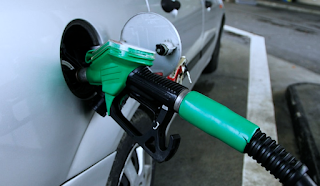World Bank's Push to Redirect Funds from Dirty Subsidies to Climate Action
Shifting the Financial Landscape for Environmental Well-being
The World Bank is embarking on an ambitious mission to encourage governments worldwide to divert funding from fossil fuel subsidies towards essential causes, particularly climate change. At present, governments globally allocate over half a trillion dollars annually to reduce the costs associated with using fossil fuels. The World Bank aims to redirect a portion of these funds towards addressing the pressing issue of climate change.
In response to the pleas of affluent governments that contribute to its funding, the World Bank is realigning its priorities to focus more on climate change, complementing its longstanding commitment to poverty eradication in developing nations. The bank's President, Ajay Banga, revealed that strategic accounting adjustments, such as changes in its equity-to-loan ratio, will enable it to increase its lending capacity by approximately one-fifth.
However, Banga emphasized that these changes alone might not suffice to meet the formidable challenges confronting the world. As a result, the World Bank is exploring avenues where untapped resources could be harnessed or repurposed. This includes scrutinizing subsidies in sectors like fuel and agriculture that contribute to environmental problems, as well as examining the potential of voluntary carbon markets.
It's important to note that the World Bank does not possess the authority to compel governments to eliminate these subsidies, but it can provide guidance and apply pressure to encourage such actions.
This move by the World Bank follows a report released by the International Monetary Fund (IMF) in September 2021, revealing that governments expend approximately $577 billion each year to make fossil fuels more affordable.
In July 2023, the World Bank released its "detox development" report, focusing on "repurposing environmentally harmful subsidies." Axel Van Trotsenburg, the bank's second-in-command, emphasized the potential for redirecting trillions of dollars from wasteful subsidies to address some of the world's most pressing challenges, particularly in the context of climate change.
According to the report, fossil fuel subsidies not only promote greater fossil fuel consumption but also undermine incentives to reduce energy usage and hinder the competitiveness of renewable energy sources.
The countries that are most prolific in providing subsidies for fossil fuels are those reliant on fossil fuel production, including Russia, Saudi Arabia, Iran, and Venezuela. However, even major Western fossil fuel producers such as the United States, the United Kingdom, and Canada, along with significant emerging economies like India, China, and Indonesia, offer substantial subsidies.
Research by the IMF indicates that in countries like Saudi Arabia and Iran, fuel subsidies result in significantly lower fuel prices compared to the free market. This research also underscores that if the social costs of fossil fuels, such as their contributions to climate change and air pollution, were factored in, the actual price would far exceed the free market price.
Efforts to phase out "inefficient" fossil fuel subsidies were pledged by the G20, representing the world's largest economies, in 2009, and have been reiterated at subsequent G20 summits. However, the implementation of these promises has been minimal.
It's worth noting that these subsidies often benefit the affluent more than the underprivileged, but their removal frequently stirs political controversy as it leads to higher living costs for many.
Moreover, a study conducted in 2022 revealed that over 40 countries have experienced riots due to fuel price-related issues in the last two decades, including notable instances in France, Zimbabwe, and Iran. Fossil fuel exporters are more likely to maintain domestic fuel prices through subsidies. When these subsidies become unsustainable, significant domestic price adjustments are required, often resulting in protests and unrest.
Ajay Banga, along with the July 2023 World Bank report, also advocates for the elimination of fishing subsidies and the redirection of $500 billion annually from environmentally-damaging agricultural subsidies.
In conclusion, the World Bank's push to shift funds from fossil fuel subsidies to climate action underscores the growing urgency of addressing climate change and realigning financial resources to protect our planet's well-being.
#WorldBank, #ClimateAction, #FossilFuelSubsidies, #ClimateChange, #EnvironmentalAdvocacy, #Sustainability, #EconomicPolicy, #ClimateSolutions, #GreenFinance, #dambeekeeper,#climatestory, #environmentalstory

